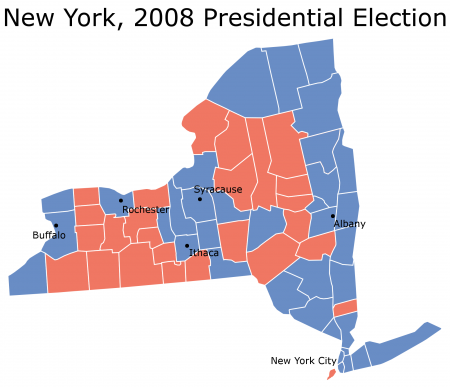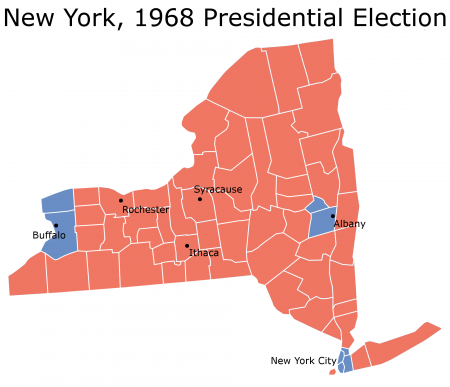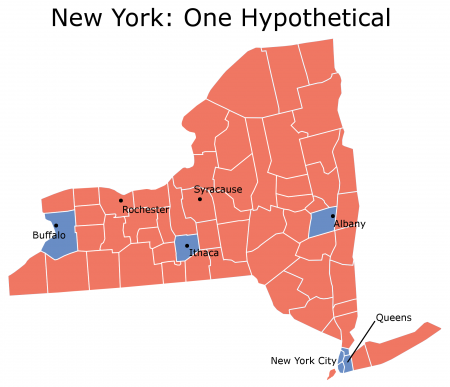Hello my fellow SSPers. As a matter of full disclosure, I should mention that I have recently taken a top-level staff job with the David Haley for U.S. Senate campaign in the state of Kansas.
I am in a quandary. I just reserved a fairly large cable buy in important media markets here in Kansas. As we have been talking about the content of our 30-second ad, I came to the realization that almost every web video I’ve seen has been better this cycle than production ads (except for Dale Peterson of course). I would like to petition any and all of my fellow SSPers to ask anybody who is interested to submit a 30-second video to my gmail (jeffesparza@gmail.com). My favorite video will be used as an ad in advance of our August 3rd primary (it should be noted that our target audience are primary voters). Our website is under construction and should be up early this week (www.haleyforsenate.com).
I understand that this does not really fall inside the mission of SSP, but as a longtime commenter (and a lurker since long before that), I was hoping that David and James might cut me a little slack.
The rest of this diary is the majority of the content that will be up on our website.
The rest of this diary is the majority of the content that will be up on our website.
Facebook Link: http://www.facebook.com/haley4…
Twitter Feed: http://twitter.com/haley4senate
Contact us at 913-396-1314 or info@haleyfor senate.com
About David:
Kansas City, Kansas native Senator David Haley is in his 16th year in the Kansas Legislature, having served six years in the Kansas House and ten years in the Kansas Senate. David serves as the Ranking Democratic Member of the Senate Health Care Strategies Committee and the Senate Public Health and Welfare Committee. He is also a member the Senate President’s Task Force on Health Care, the Child Protective Services Task Force and several standing committees, including: Senate Judiciary, Senate Redistricting, Joint Health Policy Oversight, Joint Corrections and Juvenile Justice, Joint State-Trial Relations, Joint Children’s Issues, State Trauma Board, Criminal Recodification, and Aging Advisory.
During his time in the legislature, Senator Haley has focused intently on living-wage job creation. Whether working for STAR bond development for the Legends development in western Wyandotte County, helping the state update its antiquated minimum wage law, or preventing state and local governments from seizing private property, Senator Haley has a consistent record of supporting robust, sustainable private sector job growth.
David has fought hard to end illegal profiling practices. In 2005, he co-sponsored legislation that officially banned profiling of motorists by law enforcement officers. As an appointee to the newly-created Kansas Racial Profiling Task Force, David continues to protect Kansans from this illegal practice and has been instrumental in increasing the number of Kansans who have reported instances of such crimes. In addition, his work on the Kansas criminal law recodification has helped make the Kansas criminal justice system more innovative, progressive, and fair; his recodification work will help reduce crime in Kansas over the long term making our cities and rural areas safer for businesses and families.
David continues to champion for a variety of other issues, including abolition of the death penalty, ending cruelty against animals, and finding viable solutions to the many health care challenges facing Kansas.
The proud father of four, David is a graduate of Morehouse College in Atlanta, GA, and of Howard University Law School in Washington, D.C.
David serves as the Ranking Democratic Member of the Senate Health Care Strategies Committee and the Senate Public Health and Welfare Committee. He is also a member the Senate President’s Task Force on Health Care, the Child Protective Services Task Force and several standing committees, including: Senate Judiciary, Senate Redistricting, Joint Health Policy Oversight, Joint Corrections and Juvenile Justice, Joint State-Trial Relations, Joint Children’s Issues, State Trauma Board, Criminal Recodification, and Aging Advisory.
David Haley on the Issues:
Abortion
Senator Haley believes that choosing to have a child is one of the most difficult decisions of a woman’s life. This choice should be made with the best information available and is a choice that involves family, religion, and personal believes; this choice should not be made by the government.
Civil Rights
Senator Haley has worked for his entire career on issues of civil rights. Criminal recodification, fighting illegal profiling, raising the standard of personal rights, and reforming our death penalty laws have been issues that David Haley has built real bi-partisan support around. He also supports the Employment Non-Discrimination act.
Economy and Jobs
Governor Sebelius, David Haley, and a number of leaders across Kansas came together to help with the Legends and Speedway development in Wyandotte County. With Haley’s leadership, Kansas can grow its economy with new private sector jobs like these along with new green-collar jobs all across Kansas. As a moderate Kansan, David Haley has proven his ability to help drive economic development without wasteful spending or cuts in important programs like education. This is why the MAINstream coalition has endorsed David Haley’s candidacy.
Financial Reform
When commercial banks and investment banks are allowed to securitize people’s hard earned money without any consumer protections, money will be traded at too great a risk. The people of Kansas deserve to know how their money is invested; David Haley supports financial reform.
Gun Control
David Haley fully supports 2nd Amendment rights.
Health Care
Insurance companies should not be allowed to discriminate against people with pre-existing conditions. David Haley has been a supporter of an option to allow private citizens to buy the same plan congress and government employees are allowed to purchase.
Labor
There has not been a more tireless supporter of labor organizations, working people, and Kansas small businesses than David Haley. When David Haley becomes a United States Senator, working people will have a voice in Washington.
Military
David Haley supports the troops. Unfortunately, our government does not do nearly enough for our nation’s veterans. As a United States Senator, David Haley will work tirelessly to improve our VA hospitals and veteran job-training programs.
Our record:
Elected to the State Senate in 2000, Senator Haley has earned a reputation as an effective steward of tax dollars. He serves as ranking member of the influential Public Health and Welfare Committee and the Senate Judiciary Committee; and is also a key member of the State Tribal Relations; Recodifaciation; Rehabilitation and Restoriation; Early Childhood Coordinating Council; and the Corrections and Juvenile Justice committees. His previous committee service ¬ includes Senate Assessment & Taxation; Redistricitng; and the Kansas Sentencing Commission. He is the author of more than 40 bills in the Senate.
While a member of the House, Representative Haley was the only Wyandotte Countian serving on both the House Health & Human Services and the House Judiciary Committees (which held major impact for local and state residents) and a member of the Joint Committee on Health Care Reform. A third Committee assignment was Governmental Organizations & Elections. During this brief legislative tenure, Representative Haley advocated lower real/personal property taxes and stronger representation between elected official and their constituencies. He introduced more than 25 bills in the House.
A fiscal conservative, David has championed measures to curb waste and abuse in state government in order to save taxpayers money and guarantee continued funding for public education, criminal justice, health care, and other vital services. He has sponsored a wide range of critical legislation, from ending racial profiling of motorists to increasing penalties against those who are charged with extreme cruelty to animals. Senator Haley has fought for campaign finance reform, affordable housing, and individual development accounts to encourage personal savings among low-income families. He has led the charge against allowing the government to seize private property via unfair eminent domain laws and in favor of proven programs for non-violent ex-offenders to help them find jobs and re-enter society. His legislative and community advocacy have been chronicled on The Montel Williams Show (extreme animal cruelty); HBO (27th Street/Quindaro documentary); C-SPAN (37th Anniversary/March on Washington 2000); on numerous metropolitan broadcasts and in printed news accounts (view the Media page).
In the Media:
Kansas Free Press
David Haley: My Choice for Democrat in U.S. Senate Primary
By Marty Keenan
Opinion | June 8, 2010
GREAT BEND, Kan. – The fact that four Kansas Democrats are competing this year for a chance to run for a U.S. Senate slot is encouraging. Kansas hasn’t sent a Democrat to the U.S. Senate in over 70 years, and the number of Democrats who want a shot at this is a sign of a growing, vibrant and optimistic party. The four candidates: David Haley, Charles Schollenberger, Lisa Johnston and Robert Conroy would all acquit themselves well in the general election.
But Haley is the only candidate who currently serves in elective office. He’s a fantastic public speaker. He has experience in running a statewide campaign. He has paid his dues to the Kansas Democratic Party.
Haley is not just the only candidate to hold political office, he’s a State Senator. And that’s a big deal. There are only 40 State Senators in Kansas, as opposed to 125 members of the Kansas House of Representatives. The title of “state senator” is shorthand for political success, a proven commodity. U.S. Senator Scott Brown, who snared Ted Kennedy’s Senate seat from the Democrats in Massachusetts, was a state senator. And that gave him credibility.
And he would help energize Kansas Democrats most faithful constituency: the African-American community. Haley’s family name (he’s the nephew of “Roots” author Alex Haley) would be sure to snare some national attention if he becomes the nominee. Kansas nominating an African-American to replace Sam Brownback? Now that’s a good story.
But I have a personal reason for supporting Senator Haley. You see, loyalty and friendship are #1 with me. Maybe it’s a blind spot I have. But in 2001, when I organized a film festival for Oscar Micheaux, the first African-American movie maker, who is buried in Great Bend, Senator David Haley was there for me.
Senator Haley not only traveled to Great Bend to speak at the event in 2001, he introduced a Senate resolution honoring Oscar Micheaux. Some of Oscar Micheaux’s cousins and I got to sit in the State Senate chambers when the resolution was introduced.
Our efforts to honor Micheaux must have paid off. This month the U.S. Postal Service is rolling out the Oscar Micheaux Black Heritage Series Stamp, with a special ceremony in Great Bend and other places, like Brooklyn, Atlanta and other cities around the country.
When my mother died unexpectedly on May 27, 2002, David Haley contacted me. I was floored. “How the did you find out about this?” I asked. “Marty, I always read the obituaries, ALWAYS,” he said. He offered words of comfort to me in a difficult time.
Christian musician Dallas Holm once said: “A person with an experience is never at the mercy of a person with an argument.” And many might argue with me about whether Haley is the best nominee. But, you see, I’ve had personal experiences with Haley that cause me to favor him. Politics is about people, about helping those who have been there for you. It’s always been that way.
But Democrats throughout the state don’t need a personal reason to vote for Haley. They should vote for him because he’d be the best nominee for the party in November.
First, Haley has paid his dues. In 2002 when Kathleen Sebelius was running for her first term as governor, the Kansas Democratic Party basically drafted David Haley to run for secretary of state. Haley didn’t win, but his presence on the ticket helped energize the African-American constituency statewide, and they went to the polls and helped Sebelius become Governor.
Haley ran again for secretary of state in 2006, this time on his own volition. Although Haley lost again to popular Republican incumbent Ron Thornburgh, Governor Sebelius was reelected by a larger margin in 2006 than she got in 2002, plus Democrat Paul Morrison ousted Republican Attorney General Phill Kline by a comfortable margin. Also, Democrat Nancy Boyda upset incumbent Congressman Jim Ryan. It would be hard to argue that Haley on the ticket did anything but help other Democrats in both 2002 and 2006. Kansas hasn’t elected a Democrat for Secretary of State since 1948, but at least Haley tried.
Former State Senator Billy McCray was the first African-American to run for statewide office in 1982. He ran for secretary of state, at the request of Democratic Governor John Carlin, who was running for reelection that year. McCray ran a good campaign. Although he lost, he knew he helped turn out the African-American votes for the party.
I know and respect both Haley and McCray, and they ran for statewide office because they wanted to win and be secretary of state. But in the back of their minds, surely they suspected they were, at some level, being “used” by the Kansas Democratic Party to spike black turnout on election day.
I abhor the “use” of African-American candidates simply as a tool to help white Democrats turn out the black community on election day.
I want black candidates to run to WIN, and to serve. And Haley wants to be a U.S. senator, and he would be a good one.
This year, the state Democratic establishment is not pushing Haley to run. But of all the candidates, he’s the one who has paid his dues. Serving in the legislature, attending hundreds of rubber chicken Democrat dinners, running for secretary of state. Haley has paid his dues in a thousand ways.
A Democrat winning a U.S. Senate race in Kansas is a long shot. But whoever survives the Republican primary (Moran or Tiahrt) will have an empty campaign kitty on August 3, and both have run so far to the right as to scare many Kansas voters.
“Hope Springs Eternal” with Kansas Democrats, and David Haley is getting my vote on August 3. He’s been there for me. But most of all, he’s paid his dues.

Loading ...




